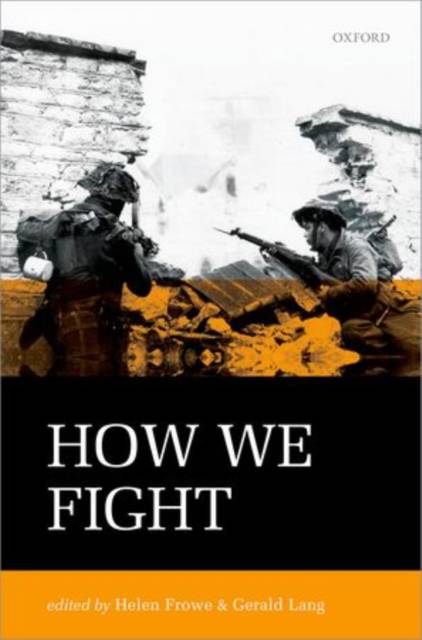
Bedankt voor het vertrouwen het afgelopen jaar! Om jou te bedanken bieden we GRATIS verzending (in België) aan op alles gedurende de hele maand januari.
- Afhalen na 1 uur in een winkel met voorraad
- In januari gratis thuislevering in België
- Ruim aanbod met 7 miljoen producten
Bedankt voor het vertrouwen het afgelopen jaar! Om jou te bedanken bieden we GRATIS verzending (in België) aan op alles gedurende de hele maand januari.
- Afhalen na 1 uur in een winkel met voorraad
- In januari gratis thuislevering in België
- Ruim aanbod met 7 miljoen producten
Zoeken
€ 143,45
+ 286 punten
Omschrijving
How We Fight: Ethics in War presents a substantial body of new work by some of the leading philosophers of war. The ten essays cover a range of topics concerned with both jus ad bellum (the morality of going to war) and jus in bello (the morality of fighting in war). Alongside explorations of
classic in bello topics, such as the principle of non-combatant immunity and the distribution of risk between combatants and non-combatants, the volume also addresses ad bellum topics, such as pacifism and punitive justifications for war, and explores the relationship between ad bellum and in bello
topics, or how the fighting of a war may affect our judgments concerning whether that war meets the ad bellum conditions. The essays take a keen interest in the micro-foundations of just war theory, and uphold the general assumption that the rules of war must be supported, if they are going to be
supported at all, by the liability and non-liability of the individuals who are encompassed by those rules. Relatedly, the volume also contains work which is relevant to the moral justification of several moral doctrines used, either explicitly or implicitly, in just war theory: in the doctrine of
double effect, in the generation of liability in basic self-defensive cases, and in the relationship between liability and the conditions which are normally appended to permissible self-defensive violence: imminence, necessity, and proportionality. The volume breaks new ground in all these areas.
classic in bello topics, such as the principle of non-combatant immunity and the distribution of risk between combatants and non-combatants, the volume also addresses ad bellum topics, such as pacifism and punitive justifications for war, and explores the relationship between ad bellum and in bello
topics, or how the fighting of a war may affect our judgments concerning whether that war meets the ad bellum conditions. The essays take a keen interest in the micro-foundations of just war theory, and uphold the general assumption that the rules of war must be supported, if they are going to be
supported at all, by the liability and non-liability of the individuals who are encompassed by those rules. Relatedly, the volume also contains work which is relevant to the moral justification of several moral doctrines used, either explicitly or implicitly, in just war theory: in the doctrine of
double effect, in the generation of liability in basic self-defensive cases, and in the relationship between liability and the conditions which are normally appended to permissible self-defensive violence: imminence, necessity, and proportionality. The volume breaks new ground in all these areas.
Specificaties
Betrokkenen
- Auteur(s):
- Uitgeverij:
Inhoud
- Aantal bladzijden:
- 230
- Taal:
- Engels
- Reeks:
Eigenschappen
- Productcode (EAN):
- 9780199673438
- Verschijningsdatum:
- 17/06/2014
- Uitvoering:
- Hardcover
- Formaat:
- Genaaid
- Afmetingen:
- 155 mm x 234 mm
- Gewicht:
- 521 g

Alleen bij Standaard Boekhandel
+ 286 punten op je klantenkaart van Standaard Boekhandel
Beoordelingen
We publiceren alleen reviews die voldoen aan de voorwaarden voor reviews. Bekijk onze voorwaarden voor reviews.









